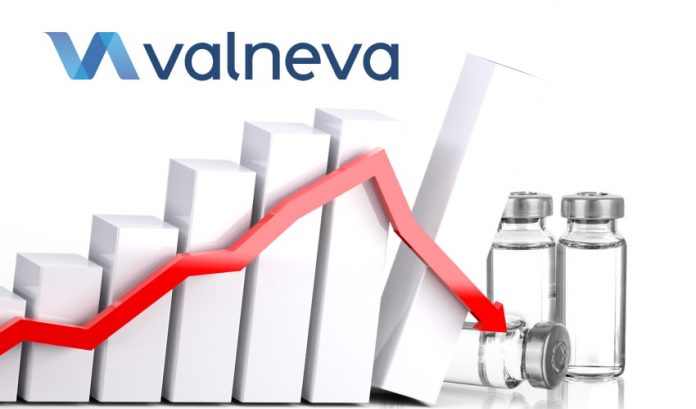Valneva shed around a quarter of its market value on Monday after the French drugmaker warned that the future of its COVID-19 vaccine was in jeopardy.
Valneva has been trying to salvage a deal with the European Commission (EC) which has indicated it would terminate an advance purchase agreement for up to 60 million doses.
Valneva CEO Thomas Lingelbach, told Reuters:
We do understand that the European Commission is faced with this challenge of having too many vaccine doses on stock. We will certainly not give up until we have tried everything
Valneva has proposed flexibility in terms of volumes, delivery time and additional stability such as the vaccine having a longer shelf life, he said. He expects to hear back from the Commission in the coming days.
But the company has cautioned that initial signs from the Commission suggest that supply volumes in the potentially amended agreement would not be enough to sustain the firm’s vaccine programme.
There is a “very significant difference” between the initial agreement and the preliminary, unofficial volume indications, said Lingelbach.
If this reduced order was confirmed, the company said it would be unable to enter into an amended agreement. Its shares tumbled about 25% in afternoon trading.
“This is clearly a disappointing development,” Rx Securities said in a note, after previously forecasting more than 400 million euros ($419 million) in COVID vaccine sales, mostly relating to the contract with the Commission.
“Our forecasts no longer assume any vaccine revenues from sales to the EC,” it said in a note.
Valneva’s vaccine programme was hit by delays in its marketing application after the European Medicines Agency (EMA) sought more information. EMA has since then accepted the application but Valneva missed the Commission’s April deadline for European approval. An EMA recommendation on whether the vaccine should be approved is now expected on June 21.
Britain cancelled its Valneva contract in 2021, although the company has secured approvals in Bahrain and the United Arab Emirates.
Valneva’s vaccine uses technology already employed for decades in shots against polio, influenza and hepatitis. The company had bet it would entice people who had refused COVID vaccines that used mRNA and other newer technology.
But demand for a new crop of COVID vaccines is uncertain. U.S.-based Novavax’s shot uses a traditional technology like Valneva’s but has had limited take up in Europe, with only about 220,000 doses administered out of 12.6 million distributed in the region.
Some vaccine makers, such as AstraZeneca and Johnson & Johnson, have warned of a global COVID vaccine glut.

